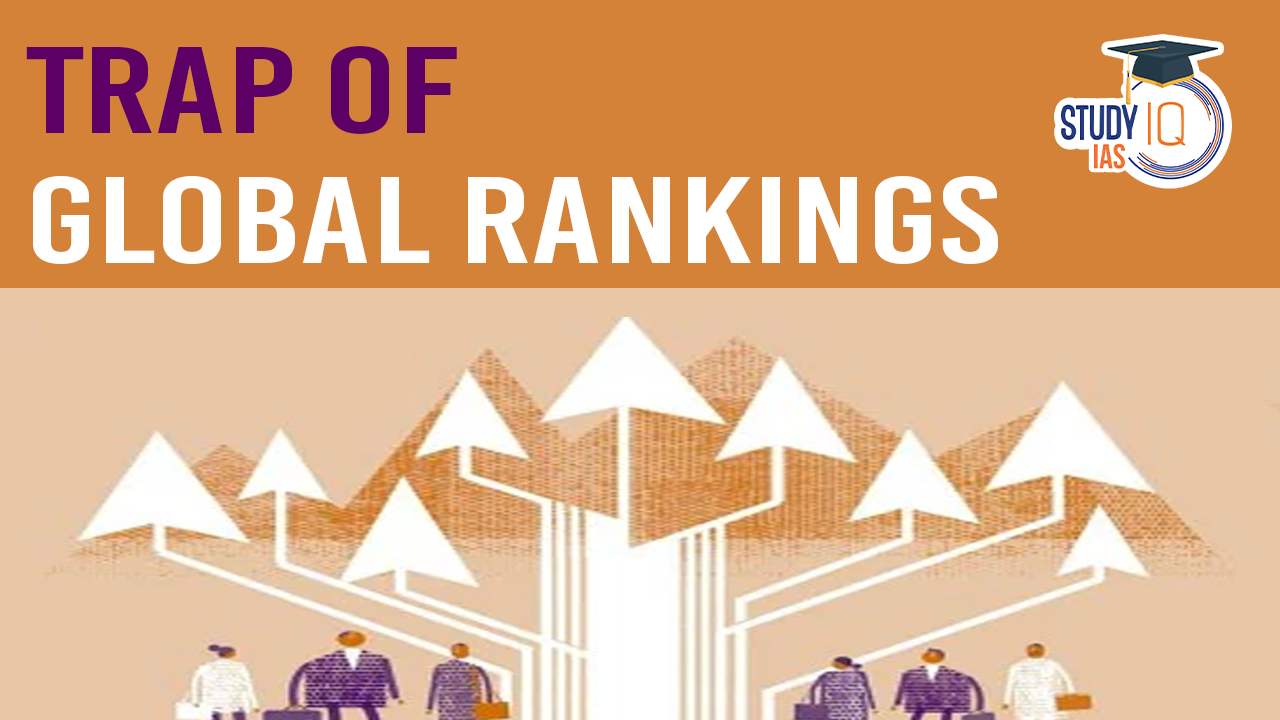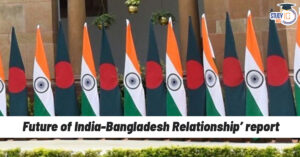Table of Contents
Trap of Global Rankings: Introduction
- Think tanks that develop global indices with various rankings such as the Global Competitiveness Index, Global Happiness Index, Global Hunger Index etc. often benefit from increased funding and publicity.
- Governments may boast about improved rankings or criticise the methodologies used.
- The cycle continues annually without thorough scrutiny.
Questions About Global Rankings
- Happiness Rankings: Why young people in countries like Lithuania and Israel are reportedly happier than those in Australia, New Zealand, or Sweden?
- Whether demographic factors, such as the Jewish population in Israel or the inclusion of Arab citizens, are adequately represented in the data?
- Anomalies in Data: The Global Gender Gap Index presents an example of strange anomalies; India ranked 26th in educational attainment in 2023 but dropped to 112th in 2024 without clear reasons.
Quality of Indices
- Variability in Standards: Not all global rankings are created equal. Some, like the Human Development Index are well-constructed but face challenges in obtaining accurate data.
- Others appear hastily assembled and often exclude perspectives from the Global South.
- Ease of Doing Business Index: The now-abandoned World Bank index focused narrowly on limited liability companies, ignoring sole proprietorships that dominate Indian businesses.
- Global Gender Gap Index: This index emphasises earnings but overlooks poverty levels, which could skew perceptions of gender equality across different countries.
Accountability Measures
To improve the credibility of global indices, the article suggests several steps:
- Methodological Transparency: Indices should include a methodological appendix explaining why specific indicators were chosen and detailing their weights.
- Authors must cite original sources for each indicator rather than relying on aggregated data from institutions like the World Bank.
- Fact-Checking Coverage: The Media should implement a 48-hour moratorium on reporting new indices to allow for critical examination and consultation with experts before publication.
- Government Response: Governments should not overly rely on these rankings but instead focus on monitoring their own progress based on national priorities.
Case Study: Global Hunger Index (GHI)
- India’s child mortality rates improved significantly from 9.1 to 3.1 over two decades.
- However, issues related to caloric intake and weight-for-height metrics contribute to its lower Global Hunger Index ranking (117th).
- The methodologies used to estimate caloric intake and undernourishment are criticised for being flawed and lacking external validity.
Moving Beyond Rankings
- Amartya Sen suggests that it may be time to move beyond traditional rankings altogether.
- If rankings must continue, establishing parameters for accuracy and sensible use is essential.
Conclusion
To gain a deeper understanding of global indices and their implications, it is essential for both researchers and policymakers to emphasise accountability in the construction and reporting of these rankings. Prioritising meaningful data over superficial rankings is crucial. A more effective approach would be to acknowledge achievements while refining goals that align with national priorities, rather than becoming overly focused on potentially misleading global standings.


 Future of India–Bangladesh Relationshi...
Future of India–Bangladesh Relationshi...
 Significance of a Strong Defence Industr...
Significance of a Strong Defence Industr...
 The Changing Patterns Of India’s Stude...
The Changing Patterns Of India’s Stude...

























